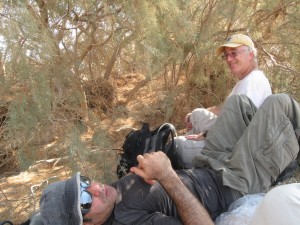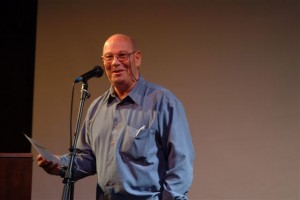All right, not so shocking. Anyway, with a bit of a delay, here’s my column on what the Wikileak cables say about Israel:
In January 1969, the labor attaché at the U.S. embassy in Israel sent a report classified “confidential” to the State Department. In it, she passed on the inside information on Israel’s ruling Labor Party that she’d gained by having an over-the-hill politician named Golda Meir over for dinner. Meir had said that then-Prime Minister Levi Eshkol would run for re-election that fall. “The tone of her remarks indicated that any other possibility was too ridiculous to consider,” attaché Margaret Plunkett commented. Eshkol’s health was “perfectly okay,” according to Meir. As for Meir herself, she’d only agreed under pressure from the party to run again for Knesset. The report would remain classified for at least 12 years.
Eshkol was actually terribly ill at the time. The ruling party’s inner circle had already chosen Meir as his successor. He died a month later. In those days, if you wanted to leak diplomatic documents, you had to copy them one at a time. Had a would-be whistle-blower at State stood over the photocopy machine after-hours, he would probably not have thought this one worth the extra seconds of his time. I have to wonder why anyone would consider it worth making a secret in the first place. To protect a source? If Meir had known that her comments could become public, perhaps she would have been more careful about fibbing. I doubt it, though. The only embarrassment for U.S. diplomacy in the memorandum is that the attaché was so eagerly misled.
Today, as the most recent WikiLeaks dump shows, it’s easier to copy a quarter-million documents than to sift through them for the interesting ones. (That’s also why Israeli whistle-blower Anat Kam allegedly copied 2,000 military documents, rather than a few.) The State Department has just followed young job applicants into the era of Facebook and cell-phone cameras: Anything you’ve ever said or done might be available online.









